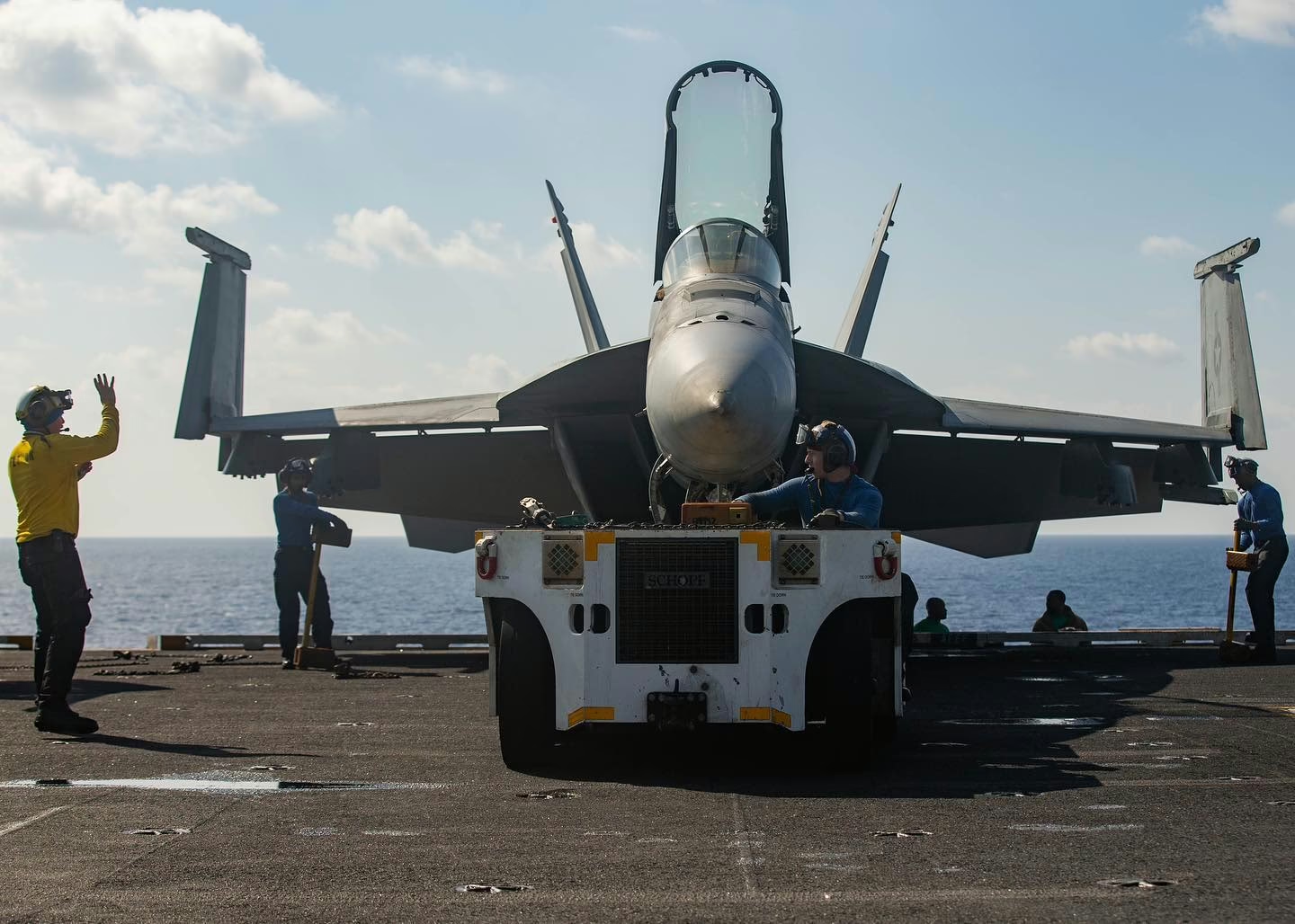
A U.S. Navy F/A-18 aboard the USS Gerald R. Ford as it is underway in the Mediterranean Sea near Israel.
The Pentagon has started delivering military equipment to Israel by air, as the department is searching its stocks for possible additional equipment and urging the U.S. industrial base to accelerate deliveries of materiel that is in production, officials announced Oct. 9.
A senior defense official told reporters that the weekend’s unprecedented attack inside Israel by Hamas is different than any previous hostilities between the two sides, with Hamas undertaking “ISIS-level savagery” against civilians. This has prompted senior Pentagon officials to make assisting Israel a high priority, with two major initiatives underway.
The first is the materiel, by ensuring that the Pentagon is responding quickly to requests from Israel for aid. This has so far included surging air defense and munitions, and “planes have already taken off” with some loads. The department is looking through its own stockpiles, including those held by U.S. Central Command in the Middle East, to help.
“We anticipate seeing a continual delivery on some of the requests Israel has made,” the official says.
While the official highlighted air defense and munitions, no specifics were provided.
In a series of events during the Association of the United States Army annual meeting Oct. 9 in Washington, top U.S. Army leaders say they support the surge of equipment and are not worried about existing stocks.
Army Chief of Staff Gen. Randy George says he is confident in the defense industry’s capacity as it has surged to provide aid for Ukraine in its war with Russia. For example, the production of 155mm artillery shells has been steadily rising as Ukraine needs them and that is not necessarily a concern if Israel requires them. Early on in Russia’s invasion of Ukraine, the U.S. and Israel provided shells from a joint stock.
“We’re actually involved in the process right now to determine what we need to provide to our partners, to Israel, and I’m confident that we’ll be able to provide them what they ask for,” George says. “I don’t know if this is additional pressure. We have realized for quite some time that we need to get after increasing our magazine depth and we’re in the process of doing that.”
The U.S. Army has two operational Iron Dome air defense systems, which are a critical part of Israel’s air defenses. The Pentagon has not determined whether to provide these or munitions to Israel yet, Army Secretary Christine Wormuth says.
“We’re going to weigh, obviously, the impacts of requests to our readiness,” she says. “I would argue that just as we’ve leaned forward with Ukraine, the intent is to lean forward in support of Israel.”
To provide adequate support, Wormuth argues the Army needs additional funding from Congress to increase capacity.
According to Doug Bush, the Army’s assistant secretary of acquisition, technology and logistics, though specifics are still being determined, the Army could provide aid from small arms ammunition up to “more sophisticated munitions.
“Army stockpiles are not extended. We’re not diminished. I mean, they might be a little lower in some cases, but we keep reserves and this is a good example of why,” he says. “The world is an unpredictable place.”
In addition to providing military equipment, the U.S. has surged forces into the region. The USS Gerald R. Ford Carrier Strike Group and its embarked air wing are set to arrive near Israel “very soon,” the official says. The carrier should be a message to Iran and Lebanese Hezbollah that they should “think twice” before taking advantage of the situation, the official says.
